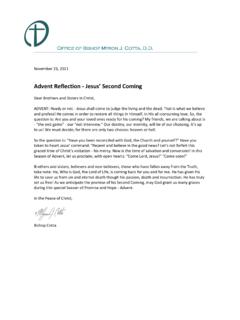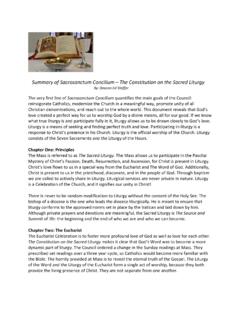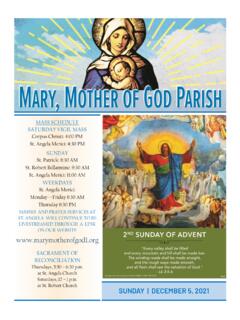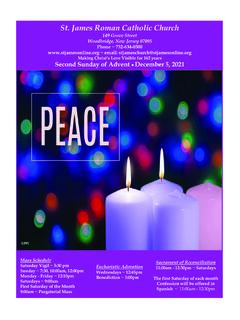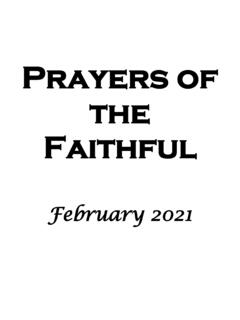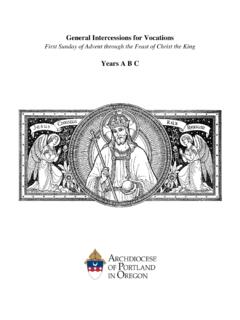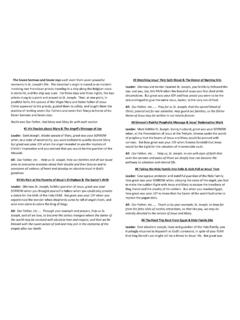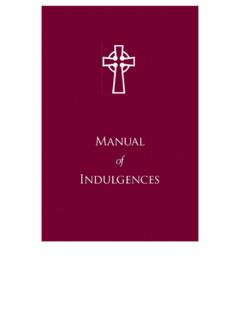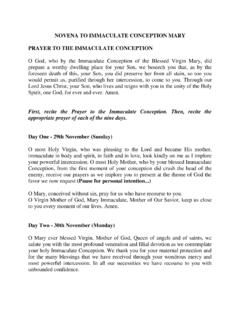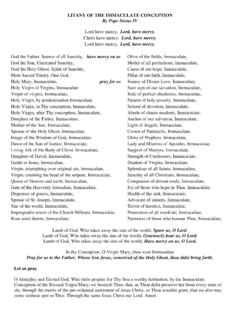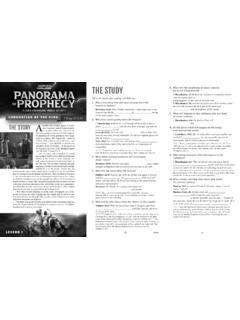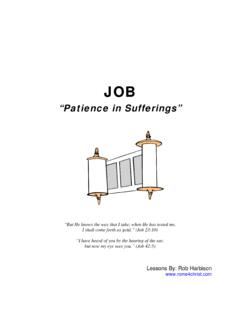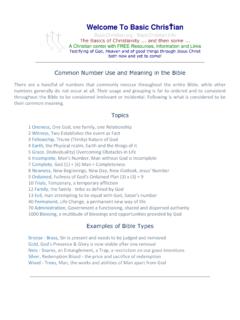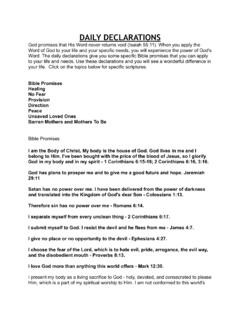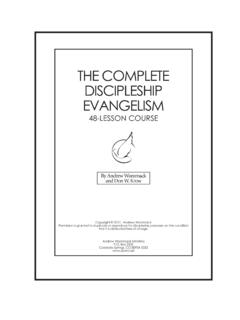Transcription of The Nicene Creed
1 1 The Nicene Creed We believe in one God, the Father, the Almighty, maker of heaven and earth, and all that is seen and unseen. We believe in one Lord, Jesus Christ, the only Son of God, eternally begotten of the Father, God from God, Light from Light, true God from true God, begotten, not made, one in Being with the Father. Through him all things were made. For us men and for our salvation he came down from heaven: by the power of the Holy Spirit he was born of the Virgin Mary, and became man. For our sake he was crucified under Pontius Pilate; he suffered, died, and was buried.
2 On the third day he rose again in fulfillment of the Scriptures; he ascended into heaven and is seated at the right hand of the Father. He will come again in glory to judge the living and the dead, and His kingdom will have no end. We believe in the Holy Spirit, the Lord, the giver of life, who proceeds from the Father and the Son. With the Father and the Son he is worshiped and glorified. He has spoken through the Prophets. We believe in one holy catholic and apostolic Church. We acknowledge one baptism for the forgiveness of sins. We look for the resurrection of the dead, and the life of the world to come.
3 Amen. 2 What Do Catholics Believe? (The Nicene Creed ) Have you ever been asked what it is that you believe as a Catholic? You can answer by reciting the Nicene Creed . But before examining the tenets of the Nicene Creed , let s look briefly at the other Creed , the Apostles Creed . The Apostles Creed I believe in God the Father, Almighty, Maker of heaven and earth. And in Jesus Christ, His only Son, our Lord, Who was conceived by the Holy Spirit, born of the Virgin Mary, Suffered under Pontius Pilate, was crucified, died and was buried. He descended into hell.
4 The third day he rose again from the dead. He ascended into heaven, and is seated at the right hand of God the Father Almighty. From thence He shall come to judge the living and the dead. I believe in the Holy Spirit, the Holy Catholic Church, The communion of saints, the forgiveness of sins, The resurrection of the body, and life everlasting. Amen. Throughout the Middle Ages, it was generally believed and accepted that the Apostles Creed was composed jointly by the twelve Apostles in Jerusalem, with each of the twelve contributing one clause of the Creed before embarking on their respective missions.
5 This legend dates back to the 4th century. Today, this is a point of argument and debate, especially within the ranks of the Protestant scholars. Nevertheless, many continue to think of this Creed as apostolic in nature because its basic teachings are agreeable to the theological formulations of the Apostolic Age. The Catholic Church does not hold a position one way or the other on this subject; however, it does hold that all of the points of the Apostles Creed are part of the Catholic Faith. Most of the western Christian faiths today profess the Apostles Creed as their core tenants of faith of Christianity.
6 Over history, the Apostles Creed functioned in many ways in the life of the Catholic Church: In the early Church, it was a confession of faith necessary for those to be baptized. 3 Catechetical instruction was based on the major tenets of the Creed . This was necessary, because many of the new Christians were not able to read and write; this, almost poetic, Creed was easy to memorize and make part of everyday life. In time, the Apostles Creed became a rule of faith to clearly separate the true faith from heretical deviations. The principle heresy that was challenging the Church at the time the Creed was written was Gnosticism, which denied that Jesus was truly man.
7 By the 6th or 7th century the Creed had come to be accepted as a part of the official liturgy of the Church. Finally, it was used, along with the Lord s Prayer, by devout individuals as a part of their morning and evening devotions. The Nicene Creed The Nicene Creed was originally formulated at the 1st Ecumenical Council of the Catholic Church held in Nicea in AD 325 and was later amplified, adopted and authorized as a true expression of the Faith at the 2nd Ecumenical Council in Constantinople in AD 381. The Nicene Creed built upon the profession of faith in the Apostles Creed , defending against many of the heresies of the time - the primary and most prominent of which was Arianism.
8 Arianism was a Christian heresy of the 4th century that denied the full divinity of Jesus Christ and was named for its author, Arius, a priest in Alexandria. Debate over his doctrine was a pressing matter for the Church for more than half a century. Arius sought to safeguard the absolute transcendence of God by teaching that God is unbegotten and without beginning. The Son, because He is begotten, cannot be God in the same sense as the Father is. Arius taught that the Son was created like all other creatures and exists by the will of the Father. (By the way, this position is also held by the Jehovah s Witnesses, who hail Arius as a great witness to the truth.)
9 Although Arianism was the most troublesome heresy of the time, it was not the only one. The Nicene Creed was absolutely necessary at the time to ensure that the lex credendi (the rule of faith - what the people believed) would both reflect and reinforce the lex orandi (the rule of prayer - how the people worshiped). One often overlooked, but nonetheless important, aspect of the Nicene Creed is that it was formulated before the Church made a determination of which books belonged in the New Testament. A list of the inspired books of the New Testament, as we have them in the Bible today, was first put together in the 39th Pastoral Letter of Saint Athanasius, Bishop of Alexandria, Egypt, in the year AD 367.
10 He wanted this list of sacred books to be the canon, or the list of sacred books of the New Testament; he listed the 27 books of the New Testament and declared that all are apostolic and canonical. St. Athanasius said, In these alone is proclaimed the Good News of the teaching of true religion. This list was confirmed by the Councils of Hippo (AD 393) and Carthage (AD 397). In the year AD 405, Pope 4 Innocent I, responding to a question as to what formed the canon, provided this very same list in response. Finally, the Council of Trent, meeting in century later in AD1545-1563, again promulgated the same list.
